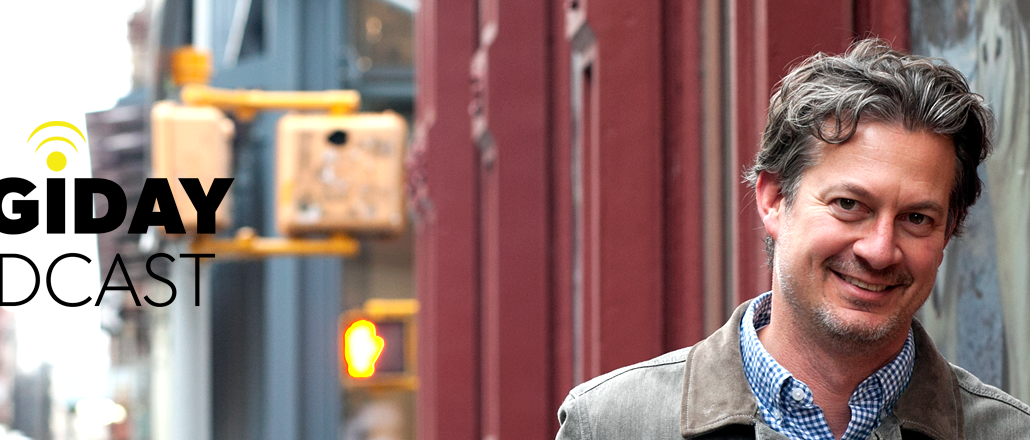
About.com was born in a different era. It was before Google, a time when portals like Yahoo and Excite ruled the roost. Needless to say, times have changed.
The challenge for About, according to CEO Neil Vogel, is how to take its expert topic content and adapt it to a new era of platforms. That will likely mean a vertical focus on key areas like health, finance and travel, rather than relying on the catchall About umbrella.
“We have to start competing like you do in 2015 and not like 2002,” Vogel said on this week’s Digiday Podcast. “In 2015 you compete for traffic vertically and you compete for ad dollars vertically.”
About had a perception problem.
When IAC purchased About from The New York Times in 2012, the site suffered from a lack of attention to the product and a complacency, said Vogel, who was brought in as CEO two-and-a-half years ago. Since then, Vogel’s team engaged in a top-to-bottom “re-platforming” of the product and strategy that takes advantage of About’s two core strengths: It’s the 35th largest site on the Web, according to comScore, with a clear value proposition around “content people really liked.”
“Everything was broken,” he said. “How can this have so much traffic and it looks terrible. Nobody had touched the tech since 2005. Nobody’s changed the design. Nobody likes to use it.”
About’s now in transformation mode.
About has expanded its headcount by 150 to 250 since Vogel joined and changed out 60 percent of its pool of 1,000 writers. The question now, according to Vogel, is what About becomes in two or three years. That means honing in on successful verticals.
“You can’t be good at everything,” he said. “You can’t have 1,000 people and expect them all to be good. What’s really helped weed through what’s good and what’s not good is looking at things vertically. Culturally the place got comfortable in doing stuff that sucks. You can’t do stuff that sucks in 2015 and survive. You’re not going to win.”
But the future is murky.
About isn’t ready to declare victory. While traffic is up and finances are solid, Vogel sees further work that needs to be done to address what he calls a “murky” future for the publisher.
“You can make a strong case we’re on the wrong side of history,” he said. “How we were built was for a different time. We pre-date Google. We pre-date search being effective. About was built to be everything for everyone. We can’t do that. We need to look long and hard at what is the future of About. I don’t think we look like this six months to 12 months from now.”
What does that look like? Verticals.
“You break about into smaller pieces that because of our size still have scale,” Vogel said. “If we took our health site right now, we’d be the fourth-largest health site on the Internet from the jump. We probably need a brand around our health site that’s an endemic brand.”
All publishers need to figure out what they’re best at doing.
For About, the key is helping people solve problems. It’s not fun listicles or breaking news. There is a temptation in digital media to spread yourself too thin, and Vogel sees reining that in as a virtue to surviving and thriving.
“What we do is we’re super contextual and contextually relevant,” he said. “We need to know when you come to our site that you want to make Thanksgiving dinner and we need to path you through that.”
Platform dependence is tricky.
Many publishers are waking up to their reality as slaves to platform algorithms, more likely Facebook’s. This is old news to About, which has long depended on Google for the overwhelming majority of its traffic. The key now is to limit algorithmic dependence. For About that means emphasizing email newsletters and newer platforms like Pinterest.
“You have to understand the algorithm you’re dependent on,” Vogel said. “One of the great things about Google is it’s the oldest and least bumpy algorithm. Facebook, they’re still figuring it out. There’s a lot more danger in being dependent on a newer algorithm than an older algorithm.”
More in Media

In Graphic Detail: The scale of the challenge facing publishers, politicians eager to damage Google’s adland dominance
Last year was a blowout ad revenue year for Google, despite challenges from several quarters.

Why Walmart is basically a tech company now
The retail giant joined the Nasdaq exchange, also home to technology companies like Amazon, in December.

The Athletic invests in live blogs, video to insulate sports coverage from AI scraping
As the Super Bowl and Winter Olympics collide, The Athletic is leaning into live blogs and video to keeps fans locked in, and AI bots at bay.





